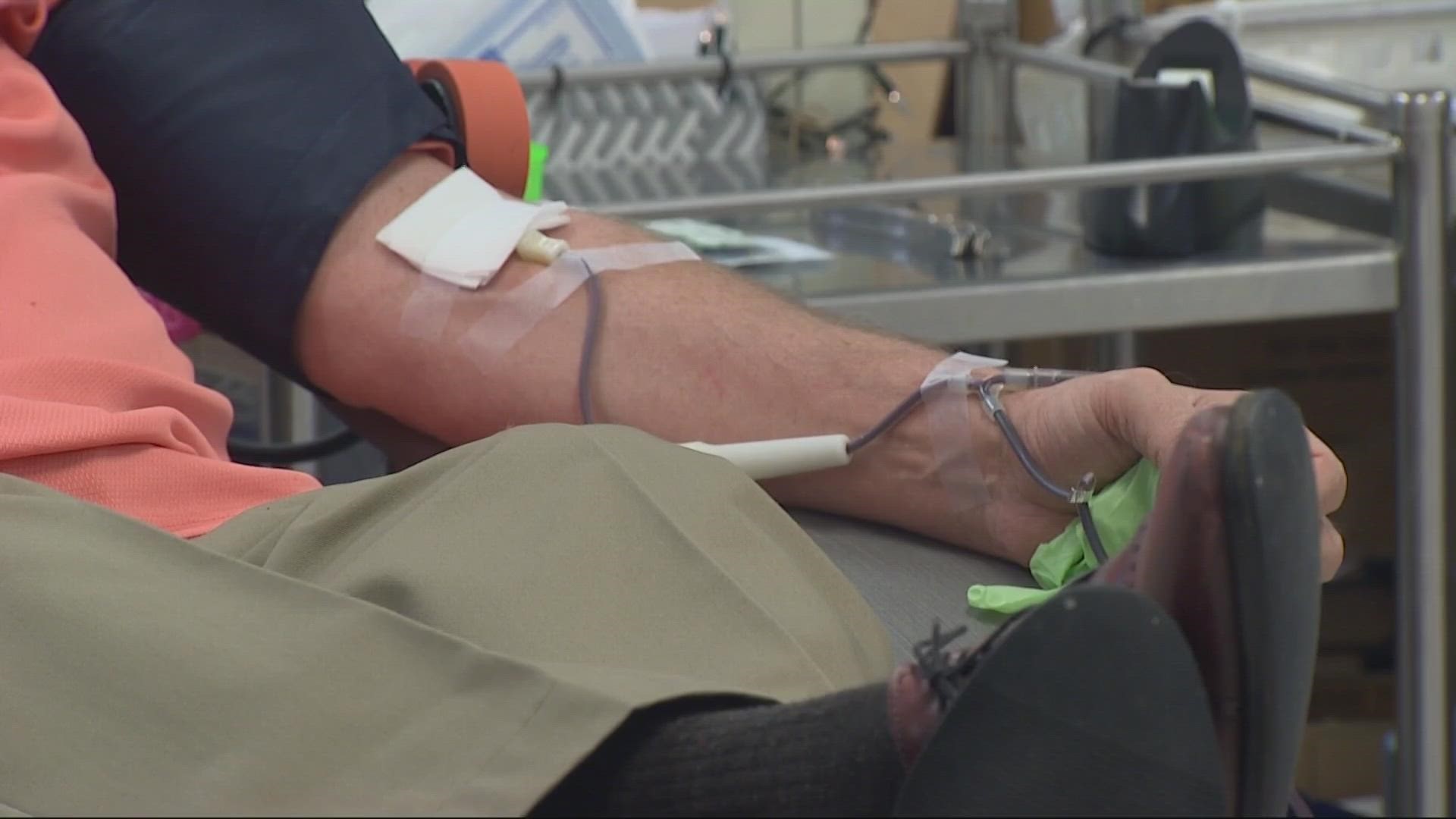PORTLAND, Ore. — The FDA is proposing new guidelines for gay and bisexual men who want to donate blood. It’s a move, that for many in the LGBTQIA+ community, is a long time coming.
Under the current rules, gay and bisexual men can only donate blood if they haven't had sex with another man for three months. The new proposal would allow anyone to donate after an individual risk assessment.
“There's been a slowness of the FDA kind of grappling with that issue and coming to decisions that makes sense,” said Richard Jung, the executive director of the Portland Gay Men’s Chorus.
In the agency’s draft proposal, the new rules would allow anyone to donate blood, regardless of gender or sexual orientation as long as they haven’t been engaged in certain sexual behaviors in the last three months.
Under the new guidelines, blood donors who report having a new sexual partner or more than one sexual partner would be asked about their sexual activity over the last three months.
“It just seems like it's been a long time coming," said Jung.
Jung lived through the AIDS epidemic that started in the 1980s. This epidemic is where the FDA restrictions on blood donations from gay and bisexual men stem from.
“It's one of those policies that were put in place in part because people were scared. It was a response to an epidemic that was hitting the LGBT community quite extensively and people were afraid that if gay people gave blood that somehow AIDS would run rampant,” Jung said.
In 1993, the FDA instituted a lifetime ban on men who had sex with men from giving blood.
It wasn’t until December 2015 the agency ended that policy and instead to a deferral of one year for any man who has had sex with another man during the past 12 months, according to the Human Rights Campaign.
In 2020, the FDA updated its policy again, this time reducing the deferral period from 12 months to three.
Critics are concern because while all blood donations are tested, HIV can be undetectable.
People taking oral medications to prevent HIV, such as PrEP, and people who have recently had sex in exchange for money or drugs would be subject to a three-month deferral period under the FDA proposal. Those taking injectable PrEP to prevent HIV infection would be deferred for two years from their most recent injection.
People with HIV, including those who take medication that drastically reduces their viral load, would still be asked to not donate blood.
“I think it tries to address it in a thoughtful manner,” Jung said. “Is it 100% perfect? No, but I think it's a step in the right direction.”
Advocacy groups and medical organizations, including the American Red Cross, have urged the FDA to lift restrictions on blood donations for gay and bisexual men — saying the practice is discriminatory and has contributed to shortages in the blood supply in the U.S.
The American Red Cross released a statement reading in part, “The Red Cross is pleased the FDA has proposed to determine blood donor-eligibility using a gender-inclusive, individual risk-based assessment regardless of sexual orientation.”
It went on to say, “The Red Cross also recognizes the hurt this policy has caused and that these are just the first steps in repairing relationships with the broader LGBTQ community.”
Read the full statement here.
“I am sure that there are people in all communities who are not going to be completely happy with this, but I think it makes the most sense for us and it follows the science, and we need to be following the science,” Jung said.
The FDA is not expected to reach a final decision until after a 60-day public comment period.

